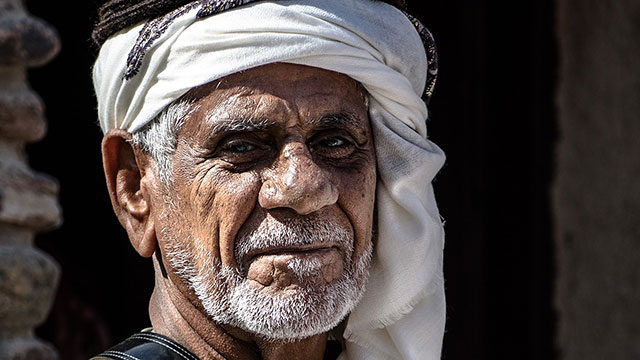Click above to watch video.
OR
Click below to play audio and read along.
Hello, my ‘Walking with Jesus’ friends on this Tuesday,
The unprovoked invasion of Russia into Ukraine is now 3 years old this week. Also, the hostage situation in Gaza has held the world in rapt attention for 16 months, since that horrific October 7th attack by Hamas terrorists into peaceful Israeli kibbutz villages. Perhaps like me, you’ve often wondered what it would be like to live in a place of such turmoil as is the heartbreaking reality for millions of people in many parts of our world today.
Part of the reason we’ve been looking closely at the Biblical record of events in Israel 2600 years ago, is the similarity to what is happening in that part of the world today. We’re seeking to understand what life lessons God has for us in 2025 whether we live in Israel or Lebanon, Syria or Ukraine, Sudan or Mexico, or any other troubled place in our world.

Yesterday, I left you with the old prophet Jeremiah in the historic town of Mizpah. The year was about 585bc. (Jeremiah 40:6) Jerusalem and the great Temple of God were nothing but piles of rubble. The last few Jerusalem residents, mostly elderly and poor, had fled to Mizpah where King Nebuchadnezzar had left a benevolent leader as governor of the region. His name was Gedaliah, and he was specifically told by Nebuchadnezzar to watch over and treat Mr. Jeremiah kindly and with dignity even though Jeremiah was a Jewish captive.
Back in Babylon, King Nebuchadnezzar, you may recall, had a Jewish captive named Daniel as one of his primary advisors. Daniel had been taken from Jerusalem as a young teen in Nebuchadnezzar’s first invasion of Jerusalem 20 years before in 605bc. Daniel had high regard for Jeremiah’s messages from God and Daniel had urged Nebuchadnezzar to recognize old Jeremiah’s value among the captives and the significance of his messages.
Today let’s travel with Jeremiah and see how his story comes to an end. In the aftermath of war and destruction people search for places of peace, safety and stability. The town of Mizpah, with Gedaliah as governor of the region, quickly became known as a safe place and people came from all around. (Jeremiah 40:7-12) Mr. Gedaliah was a good man, an honest and respectable man who assured the rapidly growing throng of refugees that he would lead them well and represent them fairly before King Nebuchadnezzar. Sadly, the influx of people came faster than Gedaliah could reasonably evaluate and among them were some terrorists similar to Hamas or Hezbollah.
In fact, one day Gedaliah received this report: “Don’t you know that Baalis, king of the Ammonites, has sent Ishmael, son of Nethaniah to take your life?’ But Gedaliah did not believe him.” (Jeremiah 40:14) I think Gedaliah’s skepticism is more a reflection of his optimistic heart than foolishness.

Sadly, the warning was accurate and Jeremiah 41:1-3 recounts that seven months later a terrorist revolt occurred similar to the Hamas attack, which caught Gedaliah unaware. He was killed as were many other of his trusted leaders. The peace and safety of Mizpah was shattered as was the peace of those southern Israel kibbutz communities on October 7th.
This evil terrorist named Ishmael, whom Gedaliah was warned about, quickly assumed ruthless power and fear swept the region. (Jeremiah 41:4-10) Some time later a rescuing party came and a battle ensued rescuing Jeremiah and the others who had sought peace in Mizpah. Evil Ishmael fled with some of his fellow terrorists.
Fearful to remain in Mizpah the refugees began a migration south seeking a peaceful place. Mizpah was only about 10 miles north of Jerusalem so it should not be difficult for us to feel their deep grief as they walked by the remains of their home city Jerusalem and the piles of Temple debris. They continued south and stopped to rest near Bethlehem. (Jeremiah 41:16-18) We don’t know if the Babylonians had also destroyed Bethlehem when they destroyed Jerusalem, but I imagine they had.
In that place several of the leaders of this migration came to Jeremiah seeking advice. Should they stay or continue wandering, possibly even going all the way to Egypt and seek refuge and safety there? Jeremiah told them he would seek God’s counsel. They promised they’d wait and furthermore, they promised to obey God no matter the message Jeremiah received. And so, they waited while Jeremiah prayed. (Jeremiah 42:1-6) Have you ever done that? Have you ever sought God’s guidance for your life and maybe your family and have you had to wait a long time for God’s response? Have you ever promised God you’d obey Him regardless of His instructions?
Let’s wait with them. Perhaps that’s where you are right now... waiting for God to give you guidance about something, maybe about your next step in life. Maybe your family or other people are waiting for you to hear from God? Perhaps some very significant decisions lie before you?
Here’s a song to help us with seeking God’s guidance and I’ll meet you right here tomorrow as we discover what God said and how Jeremiah and the people responded.
Bible images provided with attribution to www.LumoProject.com.
Have a comment or question about today’s chapter? I’m ready to hear from you, contact me here.

Pastor Doug Anderson
“Let us run with perseverance the race marked out for us, with our eyes fixed on Jesus…” (Heb. 12:1,2)
Archived back issues of “Walking with Jesus” and other resources are available by clicking here to open our ‘home page’ (or go to HOME at upper right of this page).
Share with friends. Subscribe below for daily “Walking with Jesus”.


